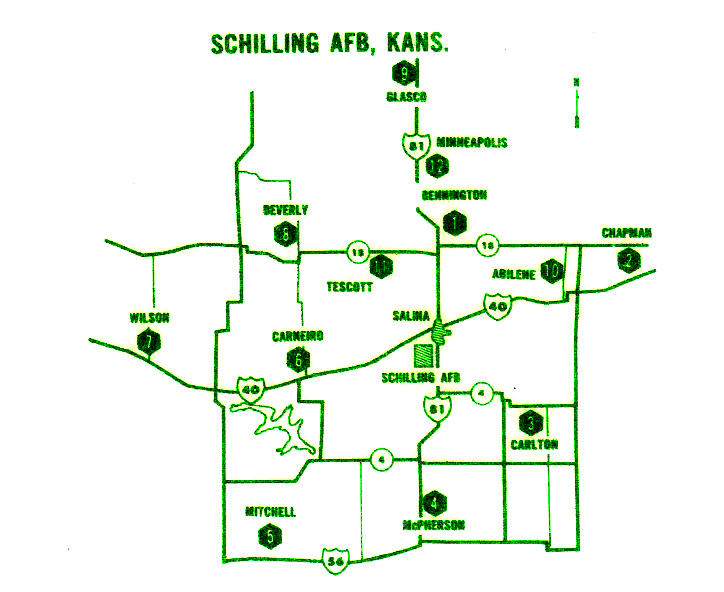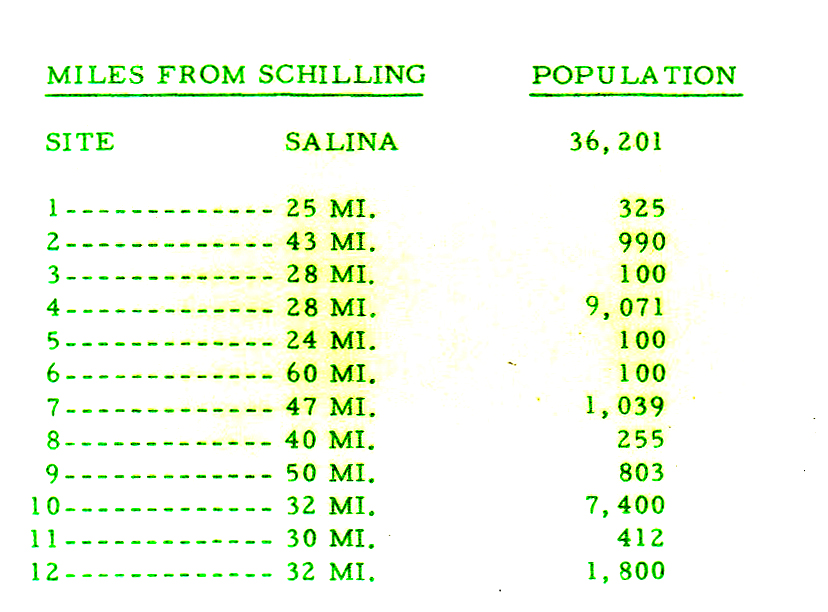Atlas Missile at Schilling AFB Kansas
Originally there were to be nine silos located around Schilling; however, the number increased to a dozen individual sites located at or near Bennington, Abilene, Chapman, Charton, McPherson, Mitchell, Kanopolis, Wilson, Beverly, Tescott, Glasco, and Minneapolis.
A joint venture of Utah-Manhattan-Sundt earned the nine-silo contract with a bid of $17.2 million. This group also received a $6.2 million contract to build the three additional lift-launcher silos.
As with Atlas construction projects at other sites, major design changes doubled the final cost of the project. Part of the cause of the cost-overrun was attributed to the contractor team's failure to anticipate the government's demands for rigid standards and exacting performance. In addition, high water tables at some of the excavation sites raised pumping costs.
During construction, safety was a continual problem. On several occasions the Corps Engineer warned the contractor that his safety program was faltering. Five fatalities and numerous injuries marred the construction effort.
An analysis of the project written after project completion blamed inexperience within the regional Corps of Engineers District Office for many of the construction problems. With the decision to consolidate ballistic missile construction within the Los Angeles-based CEBMCO, management was streamlined. CEBMCO took charge of project management in October 1960.
The activation of the 550th Strategic Missile Squadron along with a sister squadron at Lincoln, Nebraska, on April 1, 1961, marked the first standing up of Atlas F units. In June 1962, the first operational sites for the Atlas F ICBMs were accepted by SAC and in September the squadron was declared operational. In the following month during the Cuban missile crisis, the 550th received orders to maintain all 12 missiles on alert status.
In the wake of Defense Secretary McNamara's May 1964 directive accelerating the deactivation of the first generation ICBMs, SAC inactivated the squadron in June 1965.
With the closing of Schilling AFB, responsibility for the sites passed to F.E. Warren AFB, Wyoming, in July 1967. The sites were disposed of in March 1971.
To defend its Atlas F missile lift-launchers, Schilling was slated to receive two Nike Hercules batteries. However, with construction well under way, the Defense Department decided to cancel the project. A headquarters unit posted at Schilling was operational for two months in the spring of 1960.


Look here for more general information about Schilling Air Force Base.